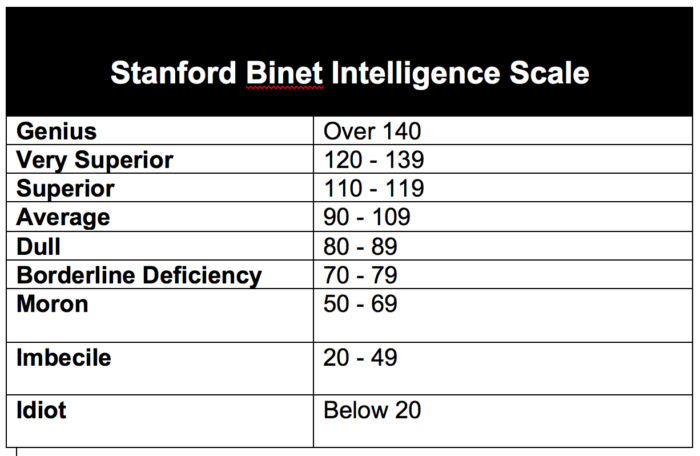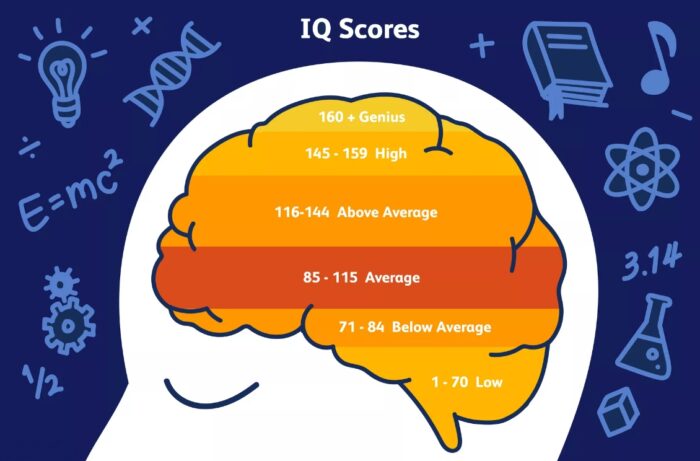Every one of us has heard that intelligence is what you need to survive, but little did they bother to explain that intelligence comes in different forms and shapes.
Since every one of us is special in our way the way our intelligence works is special itself. To accomplish a successful intelligence measurement a form of the test had to be invented. According to how you do the test you get your intelligence or IQ number. The higher the number the smarter you are right?
Is that so, and can a simple IQ test be a true measurement when it comes to our intelligence? This article today will tell you a bit about that and when on the subject of IQ tests you can find out more about them at https://iq-global-test.com/.
Now if you were searching this up then you know that Einstein had an IQ of 160 which is considered to be a genius-level IQ. If you want to join a prominent society like Mensa, you have to have an IQ bigger than 130. All of our intelligence is measured through these numbers and according to some test. We ask you today is that a good way to measure one’s intelligence? Let’s try and answer.

The best start to explanation is to define intelligence since its measurement will greatly depend on the way we define it. If we use IQ scores we can use them as short talking points, or even bragging rights but what we have to understand is that IQ can be affected by several different factors. Some of those can be so subjective, as your motivation for instance, that you wouldn’t believe the outcomes.
If you didn’t know the first instance of the now-famous IQ test was invented in the 1900s by Alfred Binet who was a French psychologist. The law that was passed in 1882 was egalitarian and stated that every healthy child has to go to school to learn reading, writing, math, history and other life basics. Very little know that this law included the children who had disabilities like deafness and blindness. Since it was obvious that not every child, disabled or no, could keep up with the curriculum, the French government asked Binet and other psychologists to create a standardized test that will measure how different kids handle all their school work.
Together with Theodore Simon, Binet created what is believed to be the first-ever IQ test called the Binet-Simon test where children had to answer a series of the question until they couldn’t anymore. Thanks to that test kids were grouped in classes with their peers without regards to their age or subjective judgements of teachers. The next decade was used to revise this test and create something that could be used on both children and adults and it got a new name the Stanford-Binet intelligence scale. This IQ test is still used today with other popular standardised tests that are supposed to measure ours learning abilities.

The first instances of this test IQ were calculated by having your standardized test score divided by your age and then multiplied by 100. Modern versions of the test have you ranked against other test takers and the scores of a group of people are scaled so that 100 is an average score while your actual IQ score is measured with where you are in relation to that average.
Now, let’s finally define intelligence and answer whether this test can measure it this way. Intelligence is defined as the ability to learn new things and adapt to new situations. Some definitions also include the usage of logic and reason and the ability to think abstract, or out of the box as we all like to say. Now, all of these definitions aim toward one thing – intellectual capacity which is how APA (American Psychological Association) is defining it. What is interesting is that intelligence can also be social, emotional, creative, but the definition by the APA does not include those. Which brings out the question is the test valid to measure your IQ?
The answer to this is what are you trying to find out about a certain individual?! IQ tests scores are a good pointer when it comes to some things but a total time waste when other qualities are in question. Part of this is because, as we mentioned, IQ scores can be affected by a lot of factors or things. Thanks to intelligence being so complex to understand, no one is sure just how much do those factors and things affect it.

Some researchers state that cognitive abilities in individuals have some sort of heritage meaning that there might be some kind of genetic component tied to IQ, but again it is just not that simple. Another research has shown that the results of the IQ test can greatly be affected by motivation. Apparently in one research people who were offered cash prizes for doing well on these test did extremely well and had higher scores than the people who were offered nothing. Another instance of this is your basic competition – a group of 5 people are competing who will get better results will score higher than a group of people doing the test for fun.
Researches go even further and reveal that IQ scores can be affected by environmental factors. Your cultural values might put you ahead in certain test parts regarding them more than some others. The level of education is something that can affect the IQ scores as well, meaning that someone who stays out of school a lot tends to have lower scores than their peers.
After reading all of this it does seems that IQ results from a mix of nature and nurture and it is subject to the factors we named and many more. The bottom line here is that IQ tests are in no way perfect but they can serve us in predicting how people can learn in future or what they need to change in the way they are learning now. This way IQ test should be considered as a medium to find out more about the person or groups of people. It should be considered as a tool not the definitive answer to one’s intelligence.







